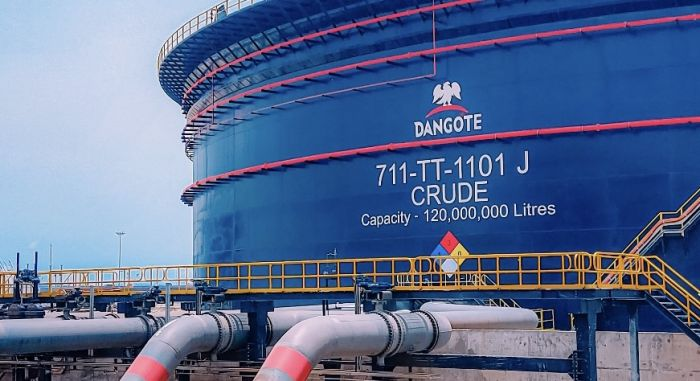Nigeria’s state-owned oil company, NNPC Ltd, clarified on Saturday that it will not be the exclusive purchaser of gasoline from the newly operational Dangote refinery. The company stated it would only intervene if the facility sold above established pump prices.

This announcement comes in the wake of the Dangote refinery’s commencement of gasoline production earlier this week. The 650,000 barrel-per-day capacity facility had initially stated that NNPC would be the sole buyer of its petrol, also known as premium motor spirit (PMS), with the government setting prices.
However, NNPC’s statement indicates a shift in this arrangement. The company explained that Dangote would determine the price of its gasoline and could sell directly to marketers who buy in bulk and distribute to fuel stations. This marks a significant change from the previous system where NNPC was the sole importer of gasoline into Nigeria.
The development is crucial for Nigeria’s energy sector and economy. For decades, the country has relied on imports for its gasoline supply, costing billions of dollars annually. The Dangote refinery’s production is expected to alleviate this dependency and potentially reduce fuel costs for consumers.
NNPC’s role in the new arrangement was further clarified: “The NNPC Ltd. will only fully offtake PMS from the DRL (Dangote Refinery Ltd) if the market prices of PMS are higher than the pump prices in Nigeria,” the company stated.

This announcement comes on the heels of NNPC’s recent price hike for petrol, from an average of 617 naira ($0.3905) per liter to 855 naira. The timing of this increase, coinciding with the Dangote refinery’s start of operations, has raised questions about the future pricing structure of gasoline in Nigeria.
According to reports, the Dangote refinery plans to supply 25 million liters of gasoline daily to the domestic market this month, with an increase to 30 million liters expected from October. This substantial production could significantly impact Nigeria’s fuel market dynamics.
The clarification from NNPC highlights the evolving landscape of Nigeria’s oil and gas sector, as the country seeks to balance domestic production capabilities with market forces and consumer needs. It also underscores the complex relationship between state-owned enterprises and private sector players in Nigeria’s energy industry.
As the situation develops, stakeholders will be closely watching how this new arrangement affects fuel prices, supply stability, and the overall energy security of Africa’s largest economy.
REUTERS



